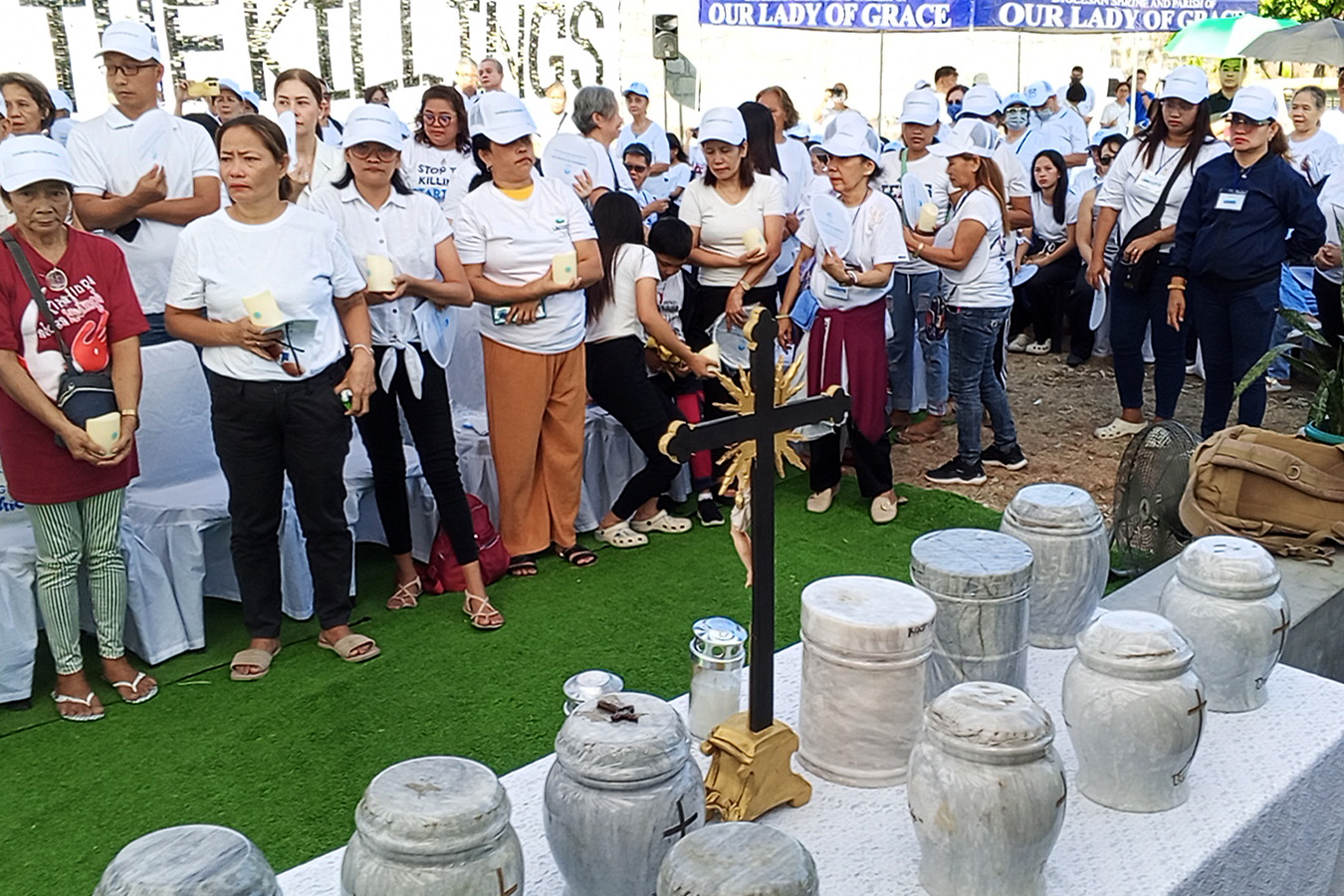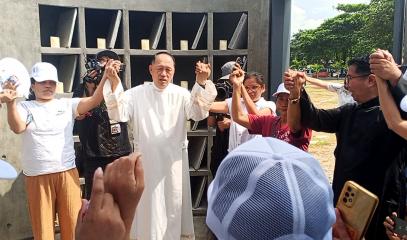Philippine Church inaugurates memorial for victims of Duterte's war on drugs
The "Dambana ng Paghilom" is in the Laloma Cemetery in Caloocan City. Diplomats, men and women religious, as well as victims’ families attended the site’s ceremonial blessing. A woman says she was forced to sign a waiver, saying that her bullet-ridden husband had died of "pneumonia”.
Manila (AsiaNews) – The Philippine Church has inaugurated a memorial, located in a Catholic cemetery in Metro Manila, for the victims of extra-judicial killings who died during the bloodiest phases of the "war on drugs" launched by former president Rodrigo Duterte, a policy strongly condemned by the country’s Catholic bishops and priests for its violence.
The celebration was held on Wednesday with the blessing of the Dambana ng Paghilom (Shrine of Healing) and the first burials of people arbitrarily killed, who will now rest in the Laloma Cemetery, Caloocan City, National Capital Region.
The 36-square-metre memorial site was built by the Arnold Janssen Kalinga Foundation Inc (AJKFI) with the support, among others, of the Diocese of Kalookan, which donated the land.
More than 250 people attended the inauguration, including former Senator Leila De Lima, EU Ambassador Luc Veron, German Ambassador Andreas Michael Pfaffernoschke, Netherlands Ambassador Marielle Geraedts, British Ambassador Laure Beaufils, and Senator Risa Hontiveros.
During the ceremony, Fr Flaviano Villanueva from the Society of the Divine Word (SVD), emphasised how the shrine and the columbarium are a place of rest and peace for the victims, as well as a “statement of hope.”
“Evil will never persist,” he said, “if men, women, senators, ambassadors, people of good conscience, human rights advocates, seminarians, sisters, religious, people at the margins will continue to stand firm for life, truth, and peace.”
In 2017, the priest founded the Paghilom programme, an initiative undertaken by the Church that initially offered legal and psychosocial support to widows, orphans and families affected by Duterte's drug war.
More recently, it expanded to include the exhumation, post-mortem, and cremation of the dead, especially for the poorest families.
Fr Villanueva lamented the situation of the families of victims of extrajudicial killings who, due to poverty, cannot provide a dignified place of rest for the remains of their loved ones. This led to Dambana ng Paghilom, which “was once a hope, and it is now real,” said the Philippine priest.
Aurora Blas, the widow of one of the victims, said the memorial site will help bring out the truth about the former president's violent and deadly campaign.
“When this project came about, I was so happy because this would be the way for the truth to come out, that my husband did not die from natural causes but from gunshot wounds,” she said.
The woman, who joined the programme after her husband was killed, said the death certificate indicated "pneumonia" as the cause of death despite the corpse showing obvious signs of gunshot wounds, particularly on the right side of the head.
“Even if the truth was as clear to me and to my children as daylight, because I was no longer thinking straight and because of my desire that his body be released and prepared as soon as possible, I turned a blind eye and signed,” Blas lamented.
She also sid that she was forced to sign a waiver, promising not to file any appeals or complaints against her husband's killers.
After the ribbon cutting, family members took part in the placing of 11 urns containing the remains of their relatives.
An investigation by the International Criminal Court (ICC) is currently underway to determine whether the killings linked to the violent anti-drug campaign are the result of state policy. This follows a similar probe by the United Nations.
According to the Philippine National Police (PNP), more than 6,600 people died in the former president's "war on drugs".
Media reports and human rights groups put the actual number of victims at between 27,000 and 30,000 when the murders by vigilantes are added.
(Photos from the website of the Catholic Bishops' Conference of the Philippines)
28/09/2018 09:46
07/01/2020 15:47
29/11/2018 15:22
11/12/2023 18:37








.png)










